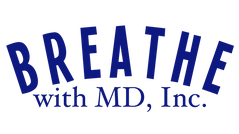|
One of our followers asked, “Does respiratory muscle weakness worsen over time?”
Just like our other body muscles weaken over time with progressive muscle wasting, our breathing muscles (those between the ribs and the diaphragm), lose strength over time. As they weaken, we take shallower breaths, filling our lungs with less and less air (Oxygen), eventually having areas of our lungs that Oxygen does not reach. Small areas of lung can collapse (called atelectasis). The issue in neuromuscular disease (NMD) is with the muscles that move air into and out of the lungs, a process called ventilation. So that means the primary issue is not the lungs themselves. Weak respiratory muscles can cause under ventilation and weak or ineffective cough, and that can lead to secondary lung issues like atelectasis and pneumonias that can damage our lungs. Because we don’t exert ourselves doing strenuous tasks, we don’t get short of breath or have symptoms to clue us in that something is wrong with our breathing. Instead, the symptoms like morning headaches, daytime drowsiness, fatigue, and anxiety when lying down can be subtle and explained away as something else. Overtime, left untreated, respiratory muscle weakness can become emergent, particularly if you develop a respiratory infection. For example, you may have reduced forced vital capacity (the maximum amount of air you can exhale after taking your deepest breath) on pulmonary function testing. It may not be so reduced that you need ventilation assistance (via a bi-level device or ventilator), but when you become ill with a respiratory infection, your forced vital capacity that was borderline abnormal is now significantly decreased, and you need help with ventilation and mechanically assisted cough (i.e. Respironics CoughAssist). You may struggle to the point you must go to the hospital. This is where it can quickly become scary, and you may not be in control of the situation. You may not have previously read up on the potential breathing problems for those with NMD and the options for care, and in the hospital, you could be forced to make uninformed decisions. That’s why with Breathe with MD, Inc. we stress that you should be as knowledgeable as possible about breathing muscle weakness, in advance of any significant problems developing. That allows you to have a plan in place and proactively address your respiratory care. With a little knowledge, you are equipped to advocate for the care that’s right for you! If you believe your respiratory muscles are weakening, schedule a visit with a pulmonologist who specializes in the breathing issues of those with NMD. They are most often located in university healthcare systems. You may benefit from ventilation assistance, mechanically assisted cough, or if you’re already using these breathing muscle aids, your settings may need periodic adjustments. Wishing you all the best, Andrea Comments are closed.
|
AuthorAndrea is the Founder & President of Breathe with MD, Inc. and served as Ms. Wheelchair Tennessee 2017. Her blog posts are based on experience living with a Neuromuscular Disease. The blogs are not to be used as a substitute for medical care. Always seek medical advice and care from a licensed medical professional. Archives
June 2023
Categories |
Breathe with MD, Inc. is a U.S. registered 501(c)(3) nonprofit organization. Donations are tax deductible to the extent allowable by law.
Note: This website should not be used as a substitute for medical care. For medical care or advice, please seek the care of a clinician who specializes in the breathing issues of those with Neuromuscular Disease (NMD).
Web Hosting by Hostgator
Note: This website should not be used as a substitute for medical care. For medical care or advice, please seek the care of a clinician who specializes in the breathing issues of those with Neuromuscular Disease (NMD).
Web Hosting by Hostgator

 RSS Feed
RSS Feed